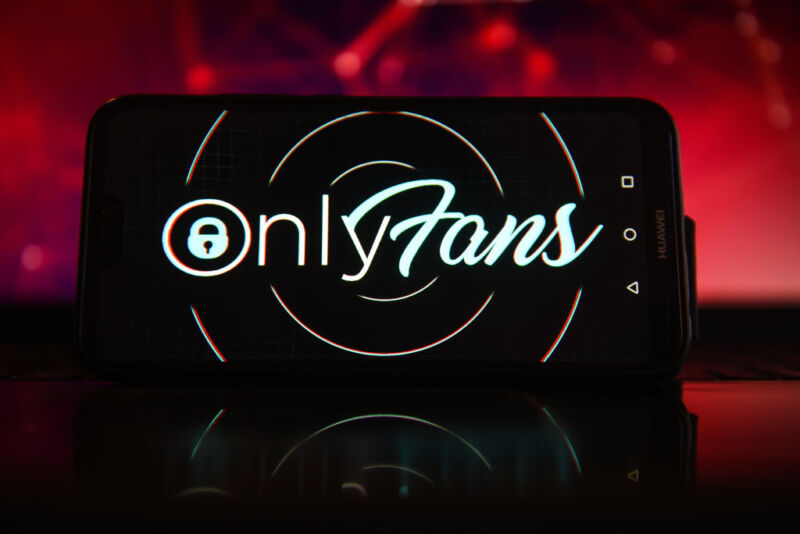Lawsuits: OnlyFans bribed Instagram to put creators on “terrorist blacklist” [Updated]

Enlarge (credit: SOPA Images / Contributor | LightRocket)
(Update, 5:27 pm ET: A GIFCT spokesperson clarified how the blacklist"-or more accurately, in its terms, its terrorist content database-works to log terrorist activity between different online platforms. She says only videos and images are currently hashed, and nothing gets automatically removed from other platforms. Instead, once content is hashed, each platform considers things like the type of terrorist entity it is or the severity of the content and then weighs those measurements against its own policies to decide if it qualifies for removal or content advisory labels.
The GIFCT spokesperson also noted that Instagram accounts are not hashed, only Instagram images and videos, and there is no blacklist" of users, although GIFCT analyzes who produces the content the organization hashes. The database records hashes to signal terrorist entities or terrorism content based on the United Nations sanctions list of terrorist entities from the UN Security Council. And all that content remains in the database unless a platform/GIFCT member like Meta uses a GIFCT feedback tool that was introduced in 2019 to flag the content as not qualifying as terrorist content. The feedback tool can also be used to recommend modified labels of content. Currently, that's the only way to challenge content that gets hashed. GIFCT members also maintain active discussions on content moderation with GIFCT's centralized communications mechanism." In these discussions, the spokesperson says none of the complaints raised in the lawsuit have been mentioned by members.
About two years ago, GIFCT became an independent nonprofit, and since then, it has released annual transparency reports that provide some insights into the feedback it receives. The next transparency report is due in December.)